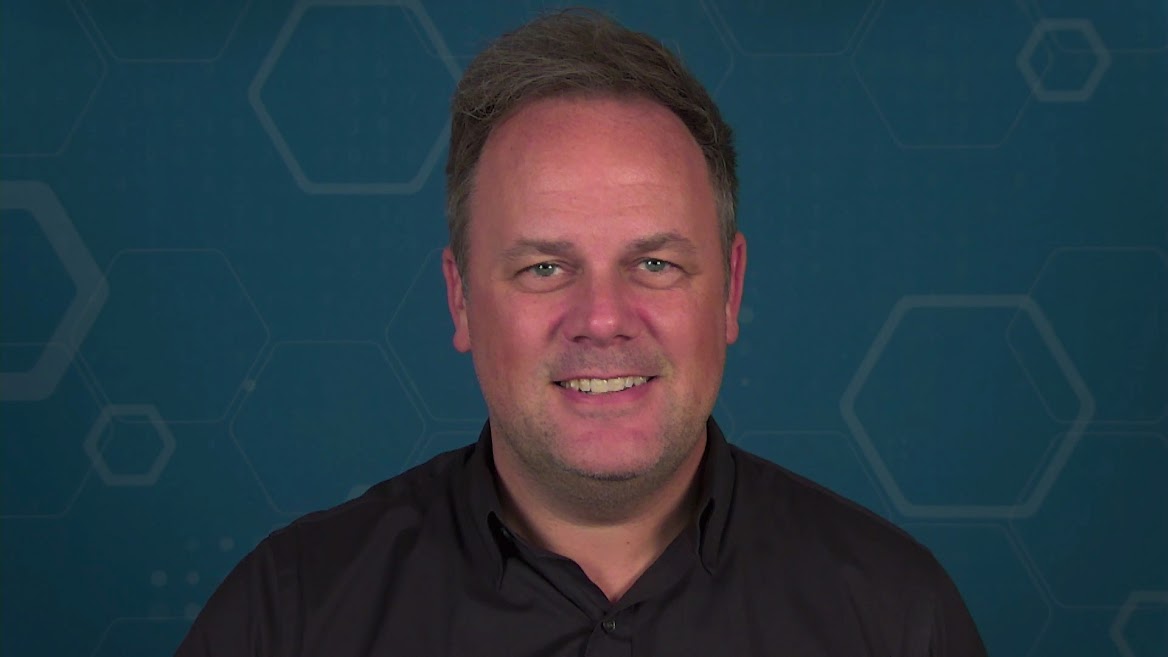 CLOUD
CLOUD
 CLOUD
CLOUD
 CLOUD
CLOUD
For software provider SAS Institute Inc., a history of providing analytics started with a very specific use case.
SAS was formed in the late 1960s as a consortium of eight universities in the southern U.S., with a mission to develop a statistical software package that could analyze agricultural data. Decades later, SAS is once again drawing on its lengthy analytics experience to prepare customers for the next chapter in artificial intelligence.
“We think as a company that’s been doing this really longer than most in the market … we can add this on in a very natural way to our entire product portfolio to extend generative AI to real use cases and industry solutions for our customers,” said Bryan Harris (pictured), executive vice president and chief technology officer of SAS. “We believe this is a feature not a product. You’ve got to integrate generative AI throughout a much more robust AI platform.”
Harris spoke with theCUBE industry analyst John Furrier at Supercloud 4, during an exclusive broadcast on theCUBE, SiliconANGLE Media’s livestreaming studio. They discussed key insights and trends surrounding enterprise adoption of generative AI.
In a previous appearance on theCUBE, Harris discussed how companies were navigating new frontiers in AI. One of the topics he covered involved regulatory industries and how generative AI was positioned to provide significant support for this particular market. Harris elaborated on this further in his Supercloud 4 interview.
“When the auditors come through, you want to ensure that you have compliance in the way you’re processing data and making decisions about the business for customers,” he said. “How can you bring in this augmented intelligence into workflows that allows a fraud analyst, a fraud leader to basically ensure that their staff is executing their investigations in a consistent way? I can get tasks recommended to me on what’s my next best action within a regulated business and that next best action is really aligned to the compliance of what your business has to adhere to.”
During its Explore conference in September, SAS unveiled new AI features in its analytics and CRM platforms. The enhancements supported the generation of statistically congruent tabular data to reflect real-world environments and deployment of a robust development platform for creating AI-driven applications. Data management will be a key initiative for enterprises as generative AI continues to become more widely adopted for specific outcomes, according to Harris.
“To produce that outcome there needs to be these specialized use cases that understand the vernacular of that industry,” he said. “To do that well, though, you have to have great data management. I believe there’s a thesis out here that says that generative AI is going to incentivize a whole resurgence in data management, because you cannot have a solid generative AI experience without incredibly good data management capabilities under the hood.”
A key part of data management is understanding not just where to place critical information, but how to create the right prompts to generate meaningful results necessary for future success.
“We saw all the failed data lakes,” Harris noted. “At your home, you don’t put everything up in the attic and go look for it. You organize your house according to your access patterns to how you’re functioning in the house. Enterprises need to do the same thing. Start with those questions first that you’re trying to answer, and let that drive that down to the organization.”
This process must also be accompanied by training of stakeholders within the organization for responsible handling of what has emerged as a powerful use of AI to affect the course of business.
“Responsible innovation is a big topic at SAS, and it’s because there are risks to this technology there can be errors with it if you don’t treat it with care,” Harris said. “It’s really important that we uplift the knowledge in the organization about this technology across all functional units in the business. We need to make sure that the values that we have as an organization and what we’re trying to help our customers with, we’re staying true to those with our technology.”
In addition to asking the right questions of data and handling it responsibly, another challenge involves concerns around walled gardens and the friction that can develop between use of company-guarded proprietary data and information in the public domain. The reality is that walled gardens will be inevitable, according to Harris.
“There’s going to have to be this walled garden, because the large language models are bootstrapping the ability to have conversant experiences with software but all that data is private in organizations,” he said. “Where companies want to feed back out for the greater good, they can do that, but they need to be in control of that.”
The generative AI announcements made by SAS in September highlighted the company’s focus on giving customers the choice of adding generative AI models from a host of providers, including OpenAI LLC, open-source repositories and privately hosted models.
“We are in the heat of implementing generative AI use cases with customers,” Harris said. “They want to apply this technology … on real game-changing outcomes for the business. For us, it’s about how we make this generative AI thing a real tangible business return, where it’s a 10x return for these businesses.”
Here’s the complete video interview, part of SiliconANGLE’s and theCUBE’s coverage of Supercloud 4:
Support our mission to keep content open and free by engaging with theCUBE community. Join theCUBE’s Alumni Trust Network, where technology leaders connect, share intelligence and create opportunities.
Founded by tech visionaries John Furrier and Dave Vellante, SiliconANGLE Media has built a dynamic ecosystem of industry-leading digital media brands that reach 15+ million elite tech professionals. Our new proprietary theCUBE AI Video Cloud is breaking ground in audience interaction, leveraging theCUBEai.com neural network to help technology companies make data-driven decisions and stay at the forefront of industry conversations.